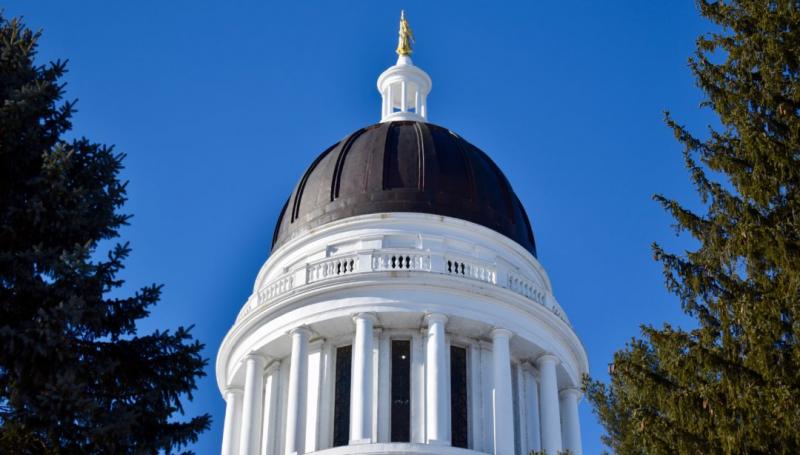Bills to end hunger by 2030, establish semi-open primaries receive funding
AUGUSTA — A pair of bills to end hunger in Maine by 2030 and establish semi-open primaries, championed by local state lawmakers were voted to be fully funded Friday.
First, LD 174 “An Act To Implement the Recommendations of the Ending Hunger by 2030 Advisory Group” received a bipartisan 13-0 recommendation for full funding from the Legislature’s Joint Standing Committee on Appropriations and Financial Affairs, a hurdle many bills which receive the votes for enactment never clear. The bill was championed by Representative Bill Pluecker (I-Warren).
“Getting this bill passed has been an amazing process that has brought people together from both parties and from across the state. I am so proud to have this effort and work recognized by the appropriations committee and receive their full support in funding the work yet to come,” said Rep. Pluecker. “Feeding the people of Maine, caring for our local food producers, and making Maine a place where all people can live without the fear of hunger is of vital importance to our resilience as a state, as a district, and as a community.”
The bill requires the Department of Agriculture, Conservation, and Forestry to act as the lead department in developing a strategic plan to end hunger in Maine by 2030.
The bill is the result of previous legislation in the 129th Legislature, which brought together over 200 stakeholders from many backgrounds to study a path towards ending poverty and food insecurity in Maine by 2030, per a news release.
Department of Economic Protection Commissioner Amanda Beal said of the plan that, “in three phases of work (interrupted by a global pandemic), upwards of 200 Maine people brought clear eyes and open minds to wrestle with the rampant and corrosive presence of hunger in our state. These people included legislators, nonprofit and business leaders, educators, policy experts, and concerned Maine residents.”
The report differed from many hunger-eradication efforts in that it sought to address the issue not just by providing more food, but by addressing underlying causes like persistent poverty in many Maine communities, the release noted.
This approach, introduced by Pluecker, has shown broad support across the political spectrum in Augusta, passing both the Maine House and Senate by unanimous votes.
Now that it has funding, the state’s strategic plan to end hunger here by 2030 will seek to increase the abundance of foods grown and caught in Maine by increasing funding for farmland and working waterfront infrastructure and protection, maximizing use of Maine-made products in federal and state programs, investing in farming and fishery-related business to increase jobs and output, and finally expanding food rescue and gleaning programs to ensure that as little of the food grown right here in Maine goes to waste as possible, according to the release.
The Department’s strategic plan will also seek to make the most of federal hunger-relief monies that have come into the state in recent years by developing initiatives that increase participation in the programs by building awareness and cultural relevance in communities and groups most likely to use the programs.
Another bill to receive funding in Augusta today, which Pluecker co-sponsored, was LD 231 “An Act to Establish Semi-Open Primaries” introduced by Senator Chloe Maxmin, a Democrat representing Lincoln County plus Washington of Knox County. The bill establishes open primaries, allowing independent and unenrolled voters to vote in any one party’s primary, including for president.
The term semi-open is used in the bill title because there is a restriction that voters who change parties may not vote in their new party’s primary for 15 days after changing enrollment status.
“One of the issues that I’ve heard over and over at the doors when I am talking to constituents, has been the difficulties that come from excluding independents from the primary process,” said Pluecker. “Primaries are paid for with taxpayer dollars, and independents are taxpayers too. I am so proud to have been part of the process of making our primary system accessible to all eligible voters.”
Thanks to Friday’s 12-1 vote by the Joint Standing Committee on Appropriations and Financial Affairs, The Department of the Secretary of State will receive a one-time appropriation of $200,932 to pay for postage and ballots thanks to the expected increased participation in the electoral process this bill will generate.
























